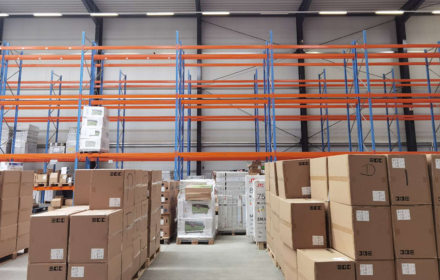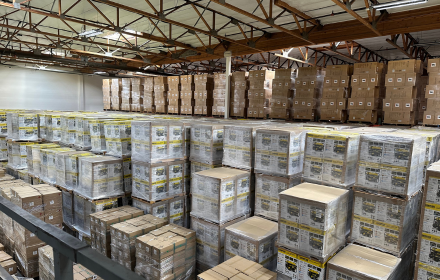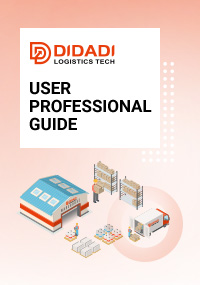How Do I Choose Between Courier Services (DHL/UPS/FedEx) and Freight Forwarders?

Importing goods from China has become one of the most common business models for e-commerce entrepreneurs, Amazon FBA sellers, and small businesses looking to scale globally. Yet one of the biggest challenges for newcomers is logistics.
After sourcing a product successfully, the next critical question is: Should I use a courier service like DHL, UPS, or FedEx, or should I rely on a freight forwarder?
At first glance, both seem to do the same job: moving goods from point A to point B. But in practice, they are very different solutions, designed for different business needs.
Choosing the wrong option can result in paying unnecessarily high shipping fees, waiting too long for products to arrive, getting stuck with customs delays, or losing money due to poor planning.
This article explains the differences between courier services and freight forwarders, explores their strengths and weaknesses, and shows how working with a China 3PL like DIDADI Logistics can help you make the right choice.
Many entrepreneurs start their businesses small, shipping samples or small orders through couriers. But as their businesses grow, the logistics needs quickly change. Suddenly, courier shipping becomes too expensive or too limited.
On the other hand, freight forwarding offers lower costs and more flexibility for larger shipments, but it also requires more paperwork and time.
Without a clear understanding, importers risk paying courier rates for cargo that should have gone by sea, or waiting weeks for ocean freight when a restock needed air shipping.
Others run into customs problems because the paperwork wasn’t handled properly. Logistics is not just about moving boxes; it is about making sure your supply chain supports your business growth.
Courier services such as DHL, UPS, and FedEx are global shipping providers known for fast, door-to-door delivery. They run their own fleets of airplanes, trucks, and distribution hubs, which means they control the entire delivery chain.
Couriers are a good fit for small, lightweight, and urgent shipments, such as product samples, limited orders, or emergency restocks. Their main advantage is speed—often just a few days from China to the United States or Europe. The process is also simple: booking is easy, tracking is straightforward, and customs clearance is automated for small parcels.
However, couriers have clear limitations. They become very expensive for larger or heavier shipments, and their services are standardized, leaving little room for customization. They do not offer specialized support for compliance or complex documentation. For businesses that plan to grow, relying only on couriers is rarely sustainable.
Freight forwarders do not own ships or planes. Instead, they coordinate transportation across carriers, whether by sea, air, rail, or truck. They book cargo space, manage documentation, handle customs, and often provide warehousing and last-mile delivery.
Freight forwarders are best for larger shipments such as pallets, containers, or regular bulk orders. Their biggest advantage is cost efficiency. Sea freight and consolidated air freight allow businesses to ship larger volumes at a fraction of courier costs.
Forwarders also offer flexibility and scalability. They can combine shipments, schedule deliveries strategically, and provide value-added services such as labeling, packaging, and Amazon FBA prep.
The trade-off is that freight forwarding requires more planning and documentation. Transit times can also be long—weeks in the case of sea freight. This makes forwarders less ideal for small orders or urgent restocks.
Speed: Couriers deliver within days. Freight forwarding varies—air freight about a week, sea freight several weeks.
Cost: Couriers charge high rates per kilogram, while forwarders are cheaper for bulk cargo.
Shipment size: Couriers are best for parcels, while forwarders handle pallets and containers.
Customs handling: Couriers provide basic clearance, while forwarders manage full compliance.
Scalability: Couriers are convenient short-term, but freight forwarders support long-term growth.
Consider an Etsy seller launching a small shop. She orders 200 custom journals from China. Since the order is light and time-sensitive, DHL is the perfect fit. It arrives in less than a week, allowing her to launch without delays.
Now imagine an Amazon FBA seller shipping 5,000 electronics accessories. Sending this by UPS would be extremely expensive. A freight forwarder arranges sea freight, applies the right HS codes, and ensures the products arrive with Amazon-compliant labeling. This saves thousands of dollars while keeping operations smooth.
Finally, think of a Shopify brand that ships monthly bulk orders but sometimes needs urgent restocks. For their bulk shipments, they use a freight forwarder by sea. But when sales spike and stock runs low, they rely on FedEx for small, urgent deliveries. This hybrid strategy combines cost efficiency with flexibility.
Global logistics is changing rapidly, and these shifts affect whether courier or freight forwarding makes sense. Rising air freight costs during peak seasons push many sellers toward sea freight.
E-commerce platforms like Amazon and TikTok Shop impose strict delivery requirements, sometimes forcing sellers to choose couriers for urgent compliance. Customs regulations are also getting more complex, making the expertise of freight forwarders more valuable.
For many businesses, the smartest strategy is no longer to rely solely on one option, but to combine both depending on circumstances.
At DIDADI Logistics, we do not ask importers to choose one option blindly. Instead, we design a strategy that blends both couriers and freight forwarding depending on your shipment size, urgency, and growth stage.
We work directly with DHL, UPS, and FedEx for urgent or lightweight shipments. At the same time, we provide air and sea freight forwarding, including consolidation, customs support, and last-mile delivery. For businesses that need more than transport, we also offer China-based warehousing, packaging, labeling, and Amazon FBA preparation.
With this approach, you never overpay for courier shipping when freight is the smarter choice, and you never wait unnecessarily long when a courier can get the job done faster.
There is no one-size-fits-all answer to whether you should use a courier or a freight forwarder. The right choice depends on how much you are shipping, how quickly you need it, and how your business is evolving.
Couriers are best for small, urgent, and lightweight shipments. Freight forwarders are best for bulk shipments, complex compliance, and scalable operations. Many growing importers use both together, creating a hybrid strategy that balances cost and speed.
By working with a 3PL like DIDADI Logistics, you can confidently use couriers when speed matters and freight forwarding when scale matters. Instead of being stressed by logistics, you can turn shipping into a competitive advantage for your business.
Recommended Reading















